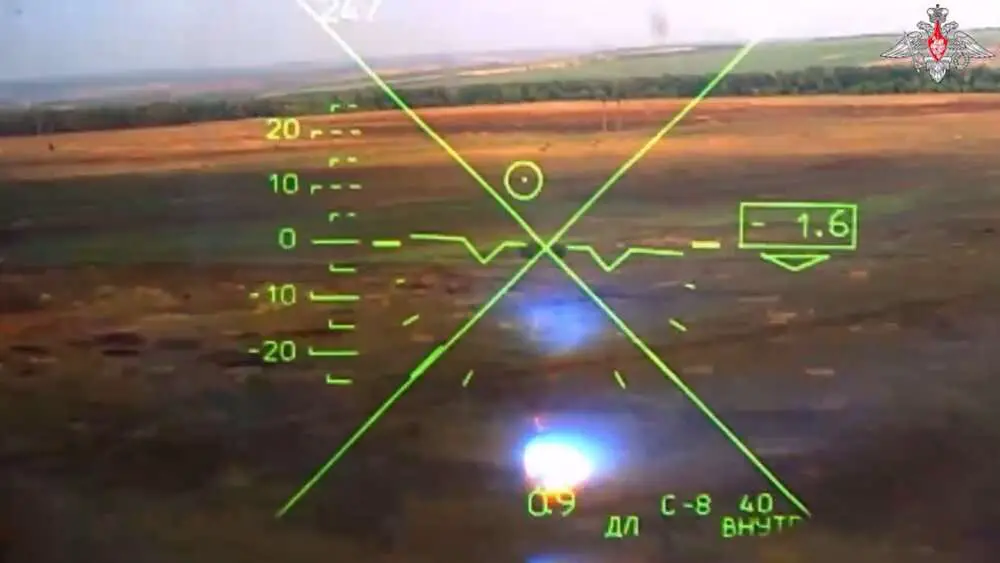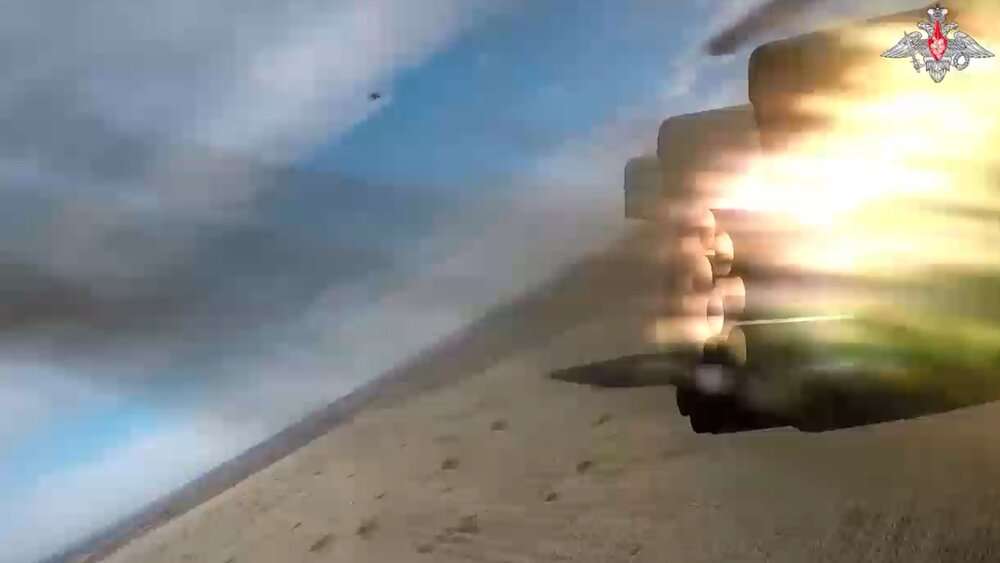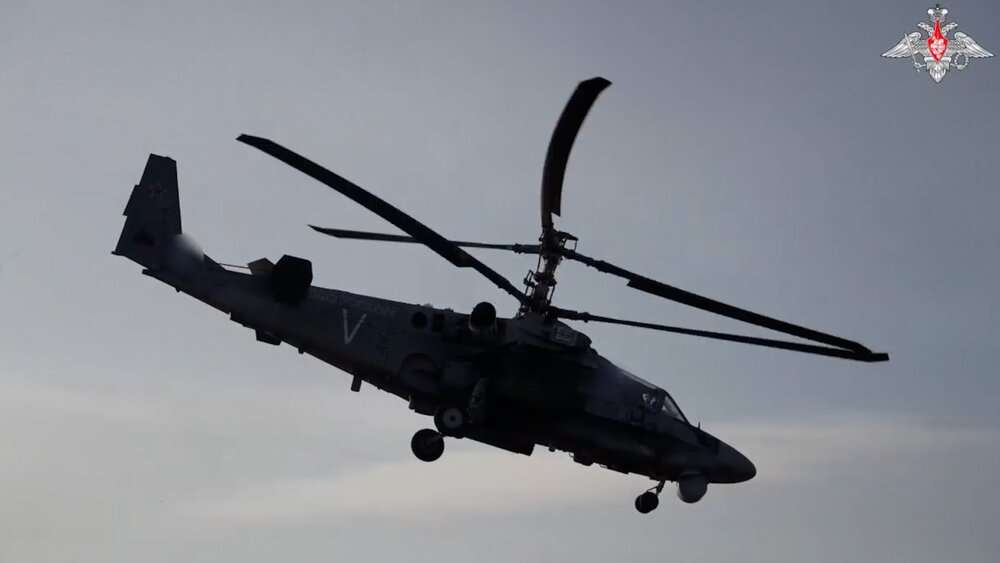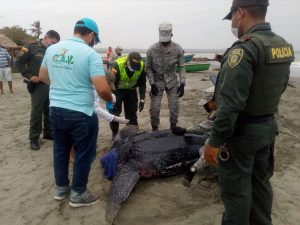These images purport to show Russian Ka-52 ‘Alligator’ attack helicopters attacking targets in Ukraine.
The footage shows one of them taking off from a base at an undisclosed location before at least two of them can be seen flying low in the sky over countryside.
The images then show one of the attack helicopters opening fire on unseen targets.
The footage then appears to show one of the attack helicopters returning to base and coming in to land.
The images were obtained from the Russian Ministry of Defence (MoD) on Monday, 16th January, along with a statement claiming: “‘Alligators’ on the hunt: combat work of the crews of reconnaissance and attack helicopters Ka-52 of the Russian Aerospace Forces.
“The crews of Ka-52 attack helicopters inflict damage with unguided 80-mm aircraft missiles on fortified positions, equipment and manpower of the Armed Forces of Ukraine.
“When performing a missile strike, helicopter pilots use the ‘Gorka’ aerobatics element, which makes it possible to deliver a missile strike over a long distance with an accurate hit on the target. In addition, the crews fly at extremely low altitudes, skirting the terrain, in order to avoid enemy air defence systems.

“The commander of the helicopter with the call sign ‘Lumberjack’ shared that sometimes the flight height can reach one meter above ground level.
“Upon returning to the base sites, the engineering and technical staff prepares aviation equipment for further combat work.”
We have not been able to independently verify the claims or the footage.
Russia invaded Ukraine on 24th February in what the Kremlin is still calling a “special military operation”. Today marks the 327th day of the war.
The General Staff of the Armed Forces of Ukraine reported that between 24th February 2022 and 16th January 2023, Russia had lost about 116,080 personnel, 3,118 tanks, 6,204 armoured combat vehicles, 2,099 artillery units, 438 multiple launch rocket systems, 220 air defence systems, 286 warplanes, 276 helicopters, 1,872 drones, 749 cruise missiles, 17 warships, 4,870 motor vehicles and fuel tankers, and 190 units of special equipment.
Russia has claimed that its casualties have been much lower but provides infrequent updates on its latest figures.
Russian President Vladimir Putin has said on Russian state television that the war in Ukraine, which he again referred to as a “special military operation”, is going to plan and that its “dynamic is positive”.
He added: “Everything is developing within the framework of the plan of the Ministry of Defence and the General Staff.”
Russia carried out two large-scale missile attacks on the Ukrainian city of Dnipro on Saturday, with at least 35 people reportedly killed so far, according to Ukrainian officials. At least 75 people have been wounded in the attacks, with 39 people rescued. Local officials said that 46 people are still missing.
Dnipro’s Mayor, Borys Filatov said: “The chances of saving people now are minimal.”
He added: “I think the number of dead will be in the dozens.”
German weapons manufacturer Rheinmetall has said that main battle tanks from Germany would not be ready to be delivered to Ukraine until 2024.
Rheinmetall’s CEO, Armin Papperger, said: “Even if the decision to send our Leopard tanks to Kyiv came tomorrow, the delivery would take until the start of next year.”

The revelation comes after the United Kingdom promised to deliver at least 14 of its Challenger 2 main battle and other advanced artillery tanks to Kyiv, with Prime Minister Rishi Sunak confirming the move in a phone call with Ukrainian President Volodymyr Zelensky on Saturday.
Prime Minister Sunak said it was the UK’s “ambition to intensify our support to Ukraine”.
Zelensky had said on Saturday that the move “will not only strengthen us on the battlefield, but also send the right signal to other partners”.
He added that support from the United Kingdom was “always strong” and was “now impenetrable”.
UK Foreign Secretary James Cleverly has said that “now is the time to accelerate and go further and faster”.
He said that the Russian army was now on the defensive and that morale among its forces was pitifully low, blaming the “shambolic state of Russian military logistics” for the Russian army’s state of affairs.
NATO Secretary-General Jens Stoltenberg has said that Ukraine can expect further deliveries of heavy weaponry from Western countries in the near future. He said: “The recent pledges for heavy warfare equipment are important – and I expect more in the near future.”

The Secretary-General said, ahead of a meeting at the Ramstein Air Force Base in Germany on 20th January, that other Western allies will consider sending additional main battle tanks to Ukraine.



